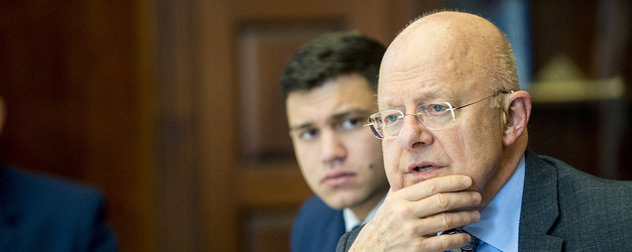The Katyn massacre was a small affair by the standards of 20th century atrocities. A mere 15,000 of Poland’s most accomplished men died in that Russian forest, along with about 7,000 others elsewhere.
Statistically, this pales in comparison to the vast numbers - ranging from hundreds of thousands well into the millions - who died under conditions not even fit to be called bestial, in events that spanned decades. Apart from the geographically dispersed Holocaust, we know these events mostly by their locations, rather than by the identities of their perpetrators or victims: Armenia, Nanking, Cambodia and Rwanda, to name just a few of the worst.
Yet the specter of Katyn, with its images of skeletal victims still cloaked in their overcoats and uniforms, continues to haunt us. Why?
Possibly because we have been burdened by the suspicion, now all but confirmed, that our own leaders knew the awful truth about Katyn but pretended they did not.
The Associated Press recently reported on newly declassified documents supporting the view that President Franklin Roosevelt and his administration knew that Soviet forces, our World War II allies, carried out the Katyn massacre but pretended that it was the work of the Nazi enemy.
Two American prisoners of war, Capt. Donald B. Stewart and Lt. Col. John H. Van Vliet Jr., were among a group of American and British POWs that the Germans brought to Katyn as witnesses when the mass graves were uncovered in 1943. German forces had only recently captured the area from the Soviets, who invaded the eastern half of Poland at the outset of the war, while Germany attacked from the west.
Though Stewart and Van Vliet were loath to believe the Germans’ accusations against the Soviets, both soldiers made it clear when they later discussed the incident that they were convinced of Soviet guilt. Stewart testified about Katyn in 1951; Van Vliet wrote reports 1945 and 1950. Despite this, the United States continued to insist that it had lacked enough evidence to be sure who was behind the killings until 1990, when Mikhail Gorbachev publicly admitted Russian guilt.
The newly revealed documents, however, show that Allied commanders were able to exchange coded messages with some of the prisoners held by Germany. Van Vliet received such a message in 1943, a few months after he viewed the mass graves, asking for his opinion of Katyn. According to The AP, Gen. Clayton Bissell noted that Van Vliet and Stewart both responded to the request. Stewart substantiated this in a 1950 statement, saying, “Content of my report was aprx (approximately): German claims regarding Katyn substantially correct in opinion of Van Vliet and myself.”
This information makes it very difficult to credit the argument that the U.S. government did not have enough evidence to be sure of Soviet guilt at the time, much less all the way until 1990.
Even if we find the decision reprehensible, we can at least understand why FDR would have chosen in 1943 to conceal the news that our Soviet allies committed the Katyn massacre. Joseph Goebbels, Nazi Germany’s minister of propaganda, hoped to use the revelation as a wedge between the Allies. (It worked, to a degree; Stalin severed diplomatic relations with the Polish government-in-exile that was based in London.) FDR may well have believed that staying mum about Katyn was for the greater good, at least while the war continued.
Perhaps if he had survived until the end of the war, Roosevelt would have come forward and condemned the atrocity. Maybe he would have apologized for having participated in covering it up. We will never know.
But the inconsistent response to inhumane behavior, depending on whether the perpetrator is friend or foe, was not unique to the 1940s. Oppression and injustice committed by allied regimes, such as Mubarak’s Egypt or the House of Saud, receive much less official attention than comparable abuses committed by hostile governments in places like Cuba and Myanmar.
The tragedy of the Polish massacres is long past, but the legacy of turning a blind eye when it is politically expedient is alive and well. Call it Realpolitik. Call it pragmatism. Maybe just call it indifference.
It may be a fact of life, but it is just as ugly now as it was 70 years ago.














September 19, 2012 - 12:43 am
A “small affair”; are you nuts? The innocent victims were the cream of Polish society.